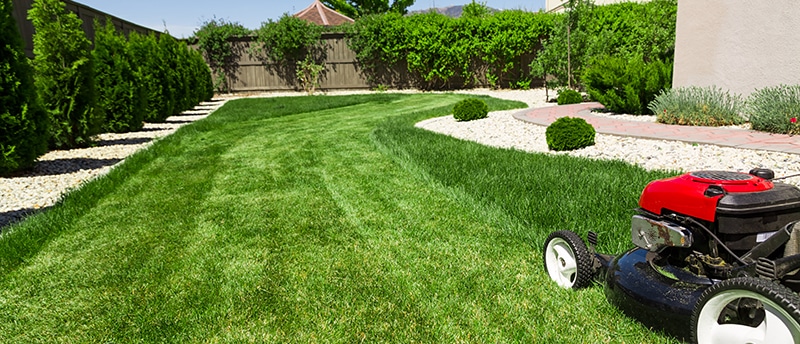Different lawn treatments can help you attain lush and thriving grass. A lawn care service identifies underlying issues in your grass and customizes treatment to suit your lawn’s needs. Here are four services for healthy lawn care:
Table of Contents
1. Fertilization and Soil Testing
Fertilization treatments give your lawn nutrients such as potassium, nitrogen, and phosphorus to grow strong and healthy. These nutrients also help the grass fight off diseases and withstand harsh temperatures. Applying fertilizer throughout the year can give your lawn a constant stream of nutrients.
Some companies use slow-release fertilizers that deliver nutrients steadily. Licensed commercial applicators can balance nitrogen, phosphorous, and potassium ratios to promote grass growth and resilience. Other companies also use organic fertilizer to reduce the use of chemicals on your grass.
Measuring soil fertility helps promote lawn quality and health. Soil testing provides information needed to amend nutrient deficiency. Lawn care experts can also apply the right fertilizer after soil testing.
2. Weed and Disease Control
Weeds compete with healthy grass for water, air, and nutrients, creating an unsightly lawn. A lawn care service can apply bio-herbicides to manage weed growth. Pre-emergent herbicides kill weed seeds before they grow into plants. If weeds have already grown in your lawn, post-emergent herbicides can eradicate them.
Fungal diseases, such as Necrotic Ring Spot, cause yellowing or browning of grass blades and thin turf. Some lawn care professionals use fungicides to control this disease, while other experts introduce soil bacteria to your lawn to get rid of the fungi. These specialists can also suggest light and frequent irrigation to control fungal growth from excess moisture.
3. Aeration
If your lawn is compacted, nutrients can’t reach the roots of your grass, leading to slow growth. To remedy this issue, your lawn needs aeration, which entails creating small holes and pulling cores out to allow nutrients to access the root zone. This process eliminates thatch and reduces soil compaction, resulting in root development and new growth.
Grass types that develop thatch require regular aeration. If your lawn has clay soil, it also needs aeration since it gets compacted. Lawn care experts aerate the lawn when the grass is strong enough to withstand the process.
4. Pest Control
Pests can thrive on your lawn since they feed on roots, soil, and leaves, causing significant damage. Lawn pests include armyworms, cutworms, chinch bugs, fire ants, millipedes, and grubs. Applying insecticides can help eliminate such pests before they ruin your grass.
Biological control, which entails using predators and other insects, is an option to control pests. Fleas and ticks can infest your lawn, feed on grass and cause yellowing or wilting. In severe cases, flea infestation can cause the death of the grass. Nematodes can be applied to lawns to control flea and tick populations.
Get Quality Lawn Care Service
Lawn care service can comprehensively address grass issues and promote growth. If you want a sustainable lawn, hire licensed experts who offer tailored services based on your grass needs. You can schedule one or multiple services to keep your lawn vibrant and healthy.




